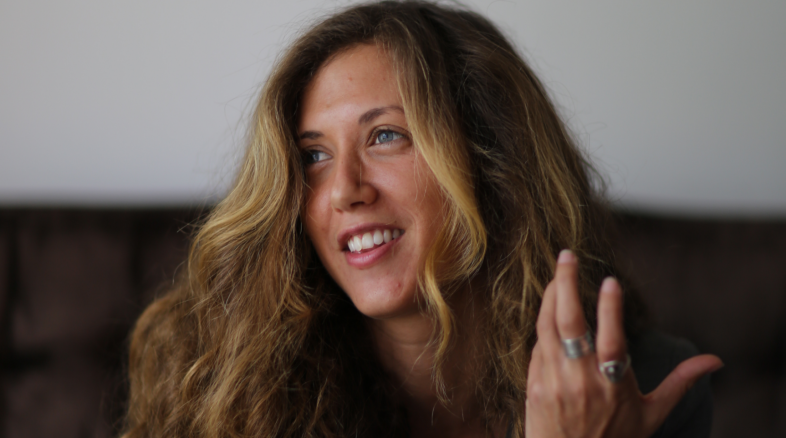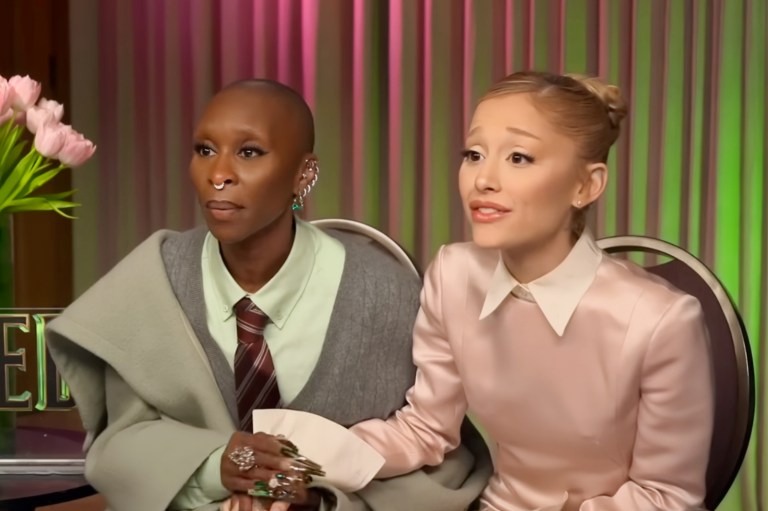
This Is Why You Should Care More About Love Languages
When we pay attention to how people give and receive love, it allows us to make the people around us feel truly loved and seen, and cared about.

I once met an Italian man in Costa Rica who told me that he could lay beside his girlfriend for 4 hours, and not speak one word, but as long as she held his hand—he would feel loved.
Today boarding an airplane I observed a man canoodling his girlfriend. He stroked her brown hair lovingly, had one hand constantly on the small of her back. As we got closer to the airplane, boarding passes in hand, I noticed his hands rarely left her.
I smiled, this man’s love language, along with my Italian friend—is loving touch.
Gary Chapman wrote a book called “The 5 Languages Of Love” that has and is radically healing this world.
Before you roll your eyes at love languages because it feels cheesy and go “woo-woo bullshit” hold on a second. We only call things “woo-woo” because we are uncomfortable with other dimensions of understanding in this world.
You want to give a fuck about love languages—whether your relationships are currently thriving or holding on with a frayed broken thread—this is invaluable knowledge to implement in all contexts of your life (not just your romantic relationships) I promise.
Gary’s work is bananas. It’s absolutely brilliant — it has helped hundreds, thousands and millions of people better understand why in relationships they sometimes struggle with not feeling loved by their partner.
My Coles notes version from reading the book is that essentially we all have a primary and secondary love language — a way in which we prefer to give affection and love to our partners. We also have a preferred love language to receive love and affection from our partners, this language is sometimes a different language from how we give.
The five love languages are:
1. Loving touch (Not just sex you animals)
2. Words of affirmation
3. Quality time
4. Gifts
5. Acts of Service
We often adopt our love languages from our parents — if they were huggers, and constantly gave lots of physical contact and touch we may very well adopt that and give love to people in our life by the language “loving touch.”
If your mom worked like a mad woman and was never around to spend much one on one time with you, but showered you with gifts and the fruits from her labour — her love language, and your love language, may be gifts, as that is how you feel she showed her love to you.
If your dad never said “I love you” out loud, but constantly did things like fixed your bike, gave you rides places or cooked you dinner — your love language and his love language might be acts of service.
If your family put an emphasis on nightly dinners that were unplugged, and family trips all together twice a year and on weekends, and if you feel most loved when somebody makes time to be 100% present in you, your love language may be quality time.
If you are dating somebody who constantly writes you messages verbally affirming how much they love spending time with you, or leaves you sweet notes around the house, whose eyes light up when you love them back with words — their love language may be words of affirmation.
I realized my primary love language was words of affirmation after one day trying to fill an entire card, with small writing–every inch, for somebody I barley knew. I felt like I had to absolutely cram it with words, or else……
Or else what?
Or else it didn’t mean I loved or appreciated them.
This realization puzzled me.
I grew up with a mom who would give me 2 or 3 cards on my birthday. Generously proclaiming her love for me in every inch of the card–she even wrote on the backs of the cards sometimes.
It made me shine, and feel loved.
Ah, I am words.
She was also a huge hugger — so I adopted loving touch as a language from her as well.
I realized this in Seattle a few years ago. I was flown down for a photo shoot/interview with Women’s Health and one of the photographers put his palm on my back to tell me he would be right back at this oyster bar. And I remember feeling so seen and acknowledged and loved by that small moment and check in with physical contact.
When I date somebody who is not touch, I can actually feel myself close down sometimes because it is what makes me curl up into a little happy loved ball inside. Without it I feel like I am dried up river.
My other mom isn’t words, her love languages are quality time and acts of service.
We don’t talk as often as my other mom and I do (who is words), sometimes we go a month without talking. And that’s okay. But when we get together we go for long walks and drop in with really rich one on one time.
When she drives me to the airport or makes me food (acts of service) it makes me feel incredibly loved.
It took me a while to understand that she just loved me in a different way.
That the long walks in the forest in Nelson were her “I love you.”
I also still sometimes call her as a 27 year old woman and say, “Uh, mom, can you tell me you love me?”
And I hear her smile as the words float into my ear and down my chest and make my heart warm.
It’s a dance.
So what happens when we have different love languages then our partners, friends or parents?
Ah, this is why Gary’s work is so fascinating and brilliant and why you are going to start giving all the fucks about him and his purple book.
This is where we can misunderstand each other’s affection and love — and it can go as far to tear apart marriages and relationships.
Let’s say I start dating Max.
Max runs 5 businesses and makes about 70 phone calls a day.
He barely has time to pee/eat let alone maintain personal relationships with how busy his life/business is.
When he’s not working and “on” he wants to hit the gym and not talk to a single soul and have alone time.
I am constantly sending him small sweet messages (as my love language is words) but he doesn’t respond with the same presence. His messages are short and not overly loving or affectionate.
He’s busy, he proclaims. He doesn’t have time to talk on the phone or write long messages everyday.
Max when he’s not working flies me all over the world to go on trips and experiences with him.
Experiences are his favourite thing.
He puts me on a small airplane and flies me to the Canary Islands, where we spend 4 days deeply dropped in together.
I don’t see him for about 3 weeks a month but when we do see each other he is truly present and loving with me.
He showers me with gifts, massages, first class tickets–I am adorned by his wallet.
Max doesn’t like cuddling or public affection — in fact even our sex lacks the physical and loving touch that makes me feel connected and beautiful and seen.
I feel frustrated with him for only buying me things, always being so busy and never sending me messages back or holding my hand.
I am craving words and touch (my love languages) and I start to resent him for not meeting these needs.
Many of my friends roll their eyes when I say I feel frustrated with him not writing me messages/holding my hand at dinner.
“I would kill for a man who flies me to Greece and buys me a to-the-floor gown for the opera that night. What are you so upset about? He clearly loves you. Stop being so difficult and needy.”
I’m oblivious and unconscious to love languages. I do not see that he is saying “I love you” in his languages — all I see are extravagant trips, money and that I’m only important enough to spend time with 1/4 of his month.
I start to shut down, we start fighting.
He doesn’t understand why I can’t see that he adores and loves me.
I can’t understand why he doesn’t understand that he’s not meeting my emotional needs.
Eventually our relationship falls apart and I leave Max for Paul.
Paul lives to touch me. He can’t keep his hands or lips of me — he drinks me in from the night we meet and I am filled to the brim, overjoyed.
He constantly sends me small messages throughout the day saying he can’t wait to see me again. He kisses the ground I walk upon through his words and I glow.
Is Paul a better match for me? Or did me and Max have a miscommunication in how we give our love, and did it, unfortunately, tear us apart?
Gary claims that through understanding what our love languages are, and also understanding what love languages our partners have — we are able to do 2 important things:
1. Still give and receive love in our partners organic primary and secondary languages, yet understand with compassion and see their giving language as love, even if it is not OUR preferred language.
2. Learn to give to our partners in THEIR preferred primary and secondary love languages, even if it’s a little less natural to us.
That way when Max buys me a ticket to see him in LA for the weekend, and organizes for a extravagant red cocktail dress to be delivered to my room, I don’t think — “here we go again, he thinks he can buy me when he neglects me all week.” I can see his love language, (gifts) and this trip (quality time) as what it is–his expression of love and affection and care for me.
His vessel for saying I love you and showing me affection is just different then what I am accustomed to.
This doesn’t mean Max is off the hook to make time, even with his busy, to send me a small message or to make an effort to hold me even if he would rather roll over after sex and just go to sleep.
It means that both happen.
I see his love language for what it is and he also understand with softness what makes me feel loved and we create a balance.
It also means that for Max’s birthdays or a surprise that I make an effort to take him on quality time trips and also buy him gifts, even if he has all the money in the world, because, on understanding love languages, I discovered Max’s preferred receiving language is the same as how he gives and this is how he also likes to receive love.
He smiles, shaking his head when I buy him the watch he was looking at, stating “it’s unnecessary” but he sees the act not as a material but as me loving him and that’s why he loves it all the more.
Note: our giving and receiving languages can be different. They are not always the same. Take the quiz/read the book to be sure.
I have a good friend, Mark, who is constantly buying me trinkets and things. Sometimes I think the things he gives me are unnecessary and cheesy.
One day I looked at him and said, “Wait, is your love language — gifts?”
And he smiled and said, “Yes.”
Now I buy him those lame “I love New York mugs” and make sure on his birthday to gift him with gifts as that’s how he feels loved and seen.
It’s not natural for me — I would rather take him on a trip to Whistler and write him a 6 page card of why I appreciate him in my life, but I know that this is how he will feel most cherished by me and I want him to feel loved and cherished.
I once babysat a 4 year old, Autumn, who was the most amazing sharer.
The first day I looked at the cabin on her parents property to rent, she drew me a picture, looked up at me wide eyed and said, “This is for you. You’re my favourite babysitter.”
I laughed as I hadn’t even signed a lease yet.
When I would spend time with her, every time she would give me something.
Teddy bears, flowers, half of a cupcake, a bite of her orange.
She would insist I take her toys, even when I politely declined.
Is Autumn a good sharer or is her love language gifts?
Gifts are not always things of monetary value.
I had a roommate 5 or 6 years ago who would always bring me back little things.
Concord grapes, a loaf of my favourite bread, sunflowers, leftover chocolate torte from the restaurant she worked at.
Her parents were both brilliant business minded individuals and had a lot of money.
Looking back today, I see those Concord grapes and yellow sunflowers as her love.
It also takes time to sometimes see and understand other people’s love languages–but it is incredibly rewarding when we figure it out.
We are literally on this planet to connect with humans. Connection is a basic need like food, air and water.
By cutting social creatures off from connection we destroy them–it’s why we are here.
If investing in understanding what can make that connection richer isn’t one of the most important things to give a fuck about today, I don’t know what is.
It’s both people in a relationship acknowledge what fills each other up (Gary Chapman calls it a love tank) and learn how to give a little in both their natural love languages, as well as their preferred love languages–a relationship thrives.
I have used this knowledge with my clients and it has proven a great success even in the context of business.
I had a client who was an extremely successful marketing manager for a company. She constantly blew the roof off her bosses expectations. He gave her raise after raise after raise but not once verbally told her how proud he was of her or how much he appreciated her on the team.
She got to a point where she was ready to quit–her bank account was full but she didn’t feel appreciated or seen.
Her love language is words, and she was running at pretty much zero with her love tank with her boss.
I explained Gary’s work and what I think was the disconnect in their relationship.
I asked her if she was comfortable bringing up Gary’s work with her boss, and asking him for some words of affirmation sometimes (along with the kick ass raises)
She was all for it.
She not only addressed it with her boss but hosted a staff meeting where all the employees in the company below her took the love language quiz so that people in the office could learn how to acknowledge, see and give to one another.
Betty, who always gets the office coffees or donuts — her love language is acts of service.
Once Miranda in the office saw this for what it was and understood love languages, she made a point the next week to bring Betty her favourite coffee.
Betty was grinning ear to ear all morning and the energy in the office became happier, lighter and more loving.
She decided to change the paper for John in the printer that day, after noticing that he was also a kindred act of service love language.
Love languages are not reserved for our romantic relationships — they are a valuable skill and tool to have in every single context of our lives.
When we pay attention to how people give and receive love, it allows us to make the people around us feel truly loved and seen, and cared about.
When somebody is feeling acknowledged, loved and appreciated because they are receiving in their first love language — they are going to be overflowing with love to give back, enriching the entire relationship/connection.
If our entire world tuned into this — I think our planet would be happier, more connected and loving.
The five languages of love radically changed my life and is a tool to healing some of the greatest misunderstandings within love and affection, world wide, that exist today. ![]()











